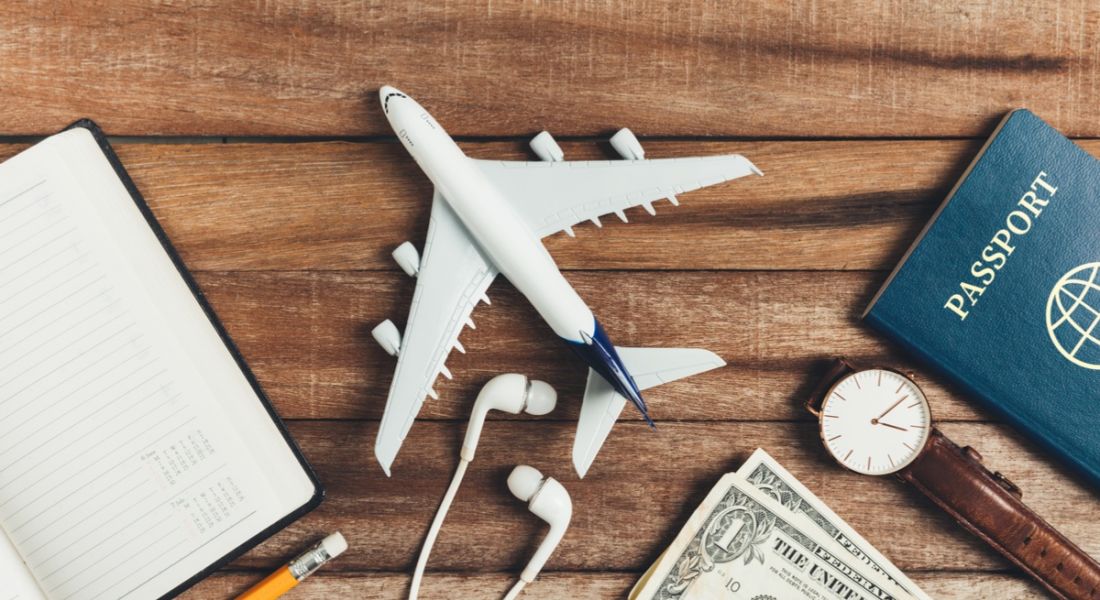Relocating for work is a big step and, depending on where you go, there are a lot of admin-style things you’ll need to sort first.
Relocating for work can be an exciting process, but it can also be stressful. There are a lot of puzzle pieces that need to fall into place for a smooth transition.
It’s not just the big jobs, either. Finding a place to live, a school for your children nearby and possibly a job for your partner will all spring to your mind quickly.
However, once those things are starting to fall into place, you’ll need to think of the smaller, more logistical things that you might take for granted at home, especially if you’re moving to a different country with different regulations.
Below is a handy list of nine major administrative things you should probably sort out as soon as possible to make your relocation go off without a hitch.
1. Visa requirements
If you’re moving to a different country, the first thing you’ll need to do is find out if you need a visa to live there and, if so, what kind of visa you need.
If you already have a job lined up, your new company might take care of this for you, but it’s worth checking anyway. Otherwise, you’ll need to do the heavy lifting.
This will mean calling the immigration office to find out what you’ll need to do. For EU citizens, this step won’t be necessary if you’re staying within the union to work.
2. Other official documents
It’s not just a visa you need to worry about. You’ll need to think about all the official documents you have at home and consider how they translate abroad.
Some of the major documents will be your insurance requirements. This includes setting up home insurance for your new abode, updating addresses and perhaps switching companies for life, travel and pet insurance.
Make sure that your new or existing plans comply with any regulations that are in place in your new location.
3. Transport
Think about how you’re going to get your car to your new home, or if you’re going to sell it and get a new one.
Be sure to check how well your driving qualification travels and find out if and how you need to go about obtaining a foreign driver’s licence.
If you’re not going to be able to hop in a car and drive as soon as you land at your new home, be sure to familiarise yourself with the public transport system before you go.
4. Banking
While it might seem like a pretty simple task, setting up a new bank account is an easy one to forget about.
It’s important to take the time to decide which one is best for you, as you would in any other situation.
You should also inform your own banks at home of your intentions to move so that your information is up to date.
5. Health
Your health insurance will be a major one that you will need to either switch completely or talk to your current provider about.
It would also be wise to get set up with a new doctor and dentist before you move, especially if you’re moving with your family.
6. Your own home
You might have spent some time looking for the best place to live once you do relocate, but have you thought about what’s going to happen to your current home?
If you’re renting, this might simply mean telling the landlord of your intentions. However, if you own your home, you’ll have to think about whether you want to sell it or rent it out.
Once you’ve decided that, you can think about your utility bills, including bins, electricity, gas and any other direct debits, and decide which ones you’ll need to cease.
7. Tax requirements
Taxes are a pain no matter where you are in the world, but every country has different tax requirements and it’s important that you get to know yours for when you live abroad.
Make sure you meet the new tax obligations and watch out for additional taxes that you may not pay in your own country. You should also inform your own tax regulatory body of your intentions to move.
Depending on where you move to and where you’re coming from, you may be entitled to certain expatriate tax benefits, so be sure to look into those.
8. Moving plans and costs
You might know in your head that you’ll have to move a significant amount of your things overseas, but knowing and doing are very different things.
The logistics of moving or shipping a significant number of your posessions can be a serious headache if you’re not prepared.
If you’re going overseas, an international moving company is best. This would also be a good time to think about exactly what you’re bringing and what you plan to do with the rest. This may include additional long-term storage costs.
9. Don’t lose touch
Another provider you should remember to switch is your phone. Make sure you’re prepared with the transfer to make it as smooth as possible, or at least know what network you’re going to set up a new phone with once you arrive.
You should also think about your post. Inform the post office of your new address for a redirect and think about any subscriptions or post you receive regularly. Can these be switched in advance?
If you want to take any subscriptions with you, note any additional charges for other countries and be sure to cancel any that you no longer want to receive.




